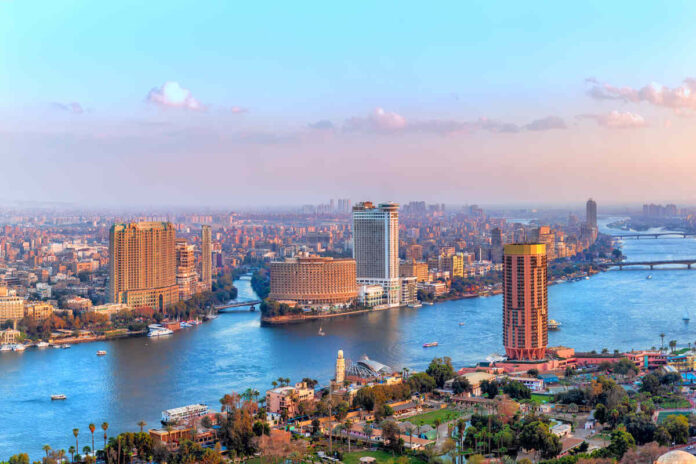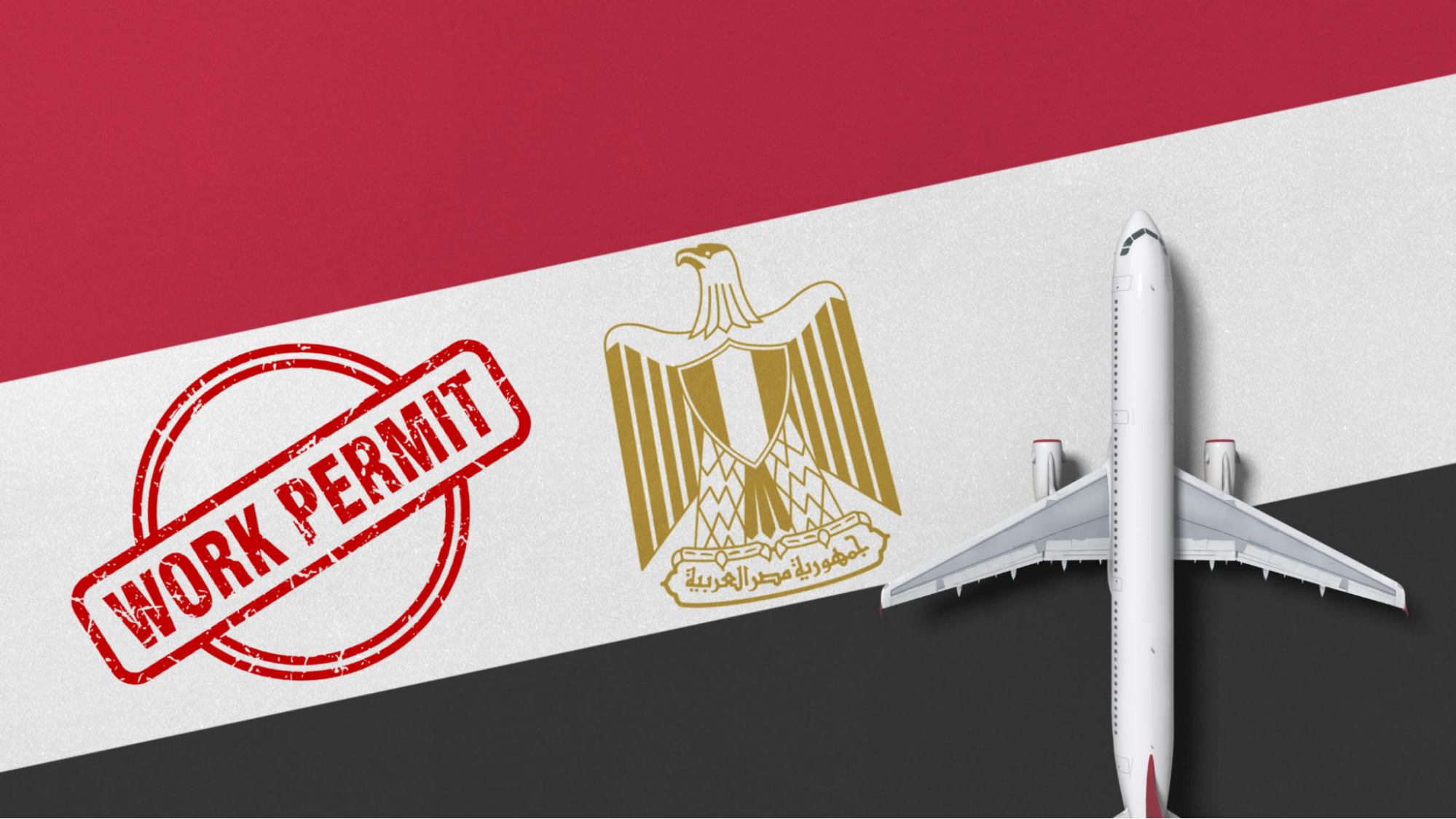Egypt: The Crossroads of History and Modern Growth
Egypt a suitable location for businesses, often called the “Cradle of Civilization,” has a profound historical legacy and strategic importance, connecting Africa, the Middle East, and Europe. Famous for its iconic landmarks like the Great Pyramids of Giza and the life-sustaining Nile River, Egypt continues to be a hub of cultural and economic significance. Its economy, driven by key sectors such as tourism, agriculture, energy, and industry, reflects a rich blend of tradition and modernity. Recent economic reforms have further enhanced investment opportunities and aimed to improve its citizens’ living standards.
Living Standards in Egypt
Egypt offers a diverse standard of living, with marked differences between urban and rural areas. Cities like Cairo and Alexandria provide access to modern amenities and greater economic opportunities, while rural areas often maintain a more traditional lifestyle.
- Housing: Housing options in Egypt are widely available and generally affordable. Urban centers like Cairo have higher housing costs, with rents ranging from moderate to high depending on the neighborhood, while rural regions offer more budget-friendly options.
- Healthcare: The healthcare system in Egypt comprises public and private services. While public healthcare is accessible, it often lacks resources, prompting many to choose private facilities for better quality. Ongoing reforms aim to improve healthcare delivery nationwide.
- Education: Free and compulsory education is provided for children aged 6 to 14. Public schools are accessible, but private and international schools are preferred by those seeking higher-quality education for their children.
- Transportation: Egypt boasts an extensive transportation network, including buses, trains, and Cairo’s efficient metro system. Public transportation is affordable, significantly reducing overall living expenses.
- Income Levels: While Egypt’s GDP per capita is moderate, urban areas benefit from better job prospects due to foreign investment and economic reforms.
Personal Taxation System in Egypt
Egypt employs a progressive income tax system, ensuring fairness by imposing higher rates on those with greater earnings.
- Income Tax Rates:
- Earnings up to EGP 15,000 are tax-exempt.
- Income from EGP 15,001 to EGP 30,000 is taxed at 2.5%.
- Income between EGP 30,001 and EGP 45,000 incurs a 10% tax.
- Earnings from EGP 45,001 to EGP 200,000 are taxed at 15%.
- Income above EGP 200,000 is subject to a 22.5% tax.
- Deductions and Exemptions: Taxpayers can claim deductions for education, medical expenses, and charitable donations.
- Social Security Contributions: Employees contribute 11% of their salary toward social insurance, while employers contribute 18.75%, funding healthcare, pensions, and unemployment benefits.
Corporate Taxation in Egypt
Egypt’s corporate tax regime is designed to attract both local and foreign investment.
- Corporate Income Tax: Businesses are taxed at a standard rate of 22.5% on taxable profits.
- Value-Added Tax (VAT): A VAT rate of 14% applies to most goods and services, with exemptions for essentials such as food and medicine.
- Withholding Taxes: Payments to non-residents, including dividends, royalties, and interest, are subject to withholding taxes of 10–20%, depending on the transaction type.
- Tax Incentives: Special Economic Zones (SEZs) and free zones provide tax benefits, including reduced rates and exemptions for sectors like manufacturing, renewable energy, and technology.
Key Economic Drivers in Egypt
Egypt’s economy thrives on a range of industries that contribute significantly to its growth and diversification:
- Tourism: A cornerstone of Egypt’s economy, tourism attracts millions annually to destinations such as the Pyramids of Giza, Luxor, and Red Sea resorts. Government initiatives are focused on sustainable tourism and infrastructure improvements.
- Agriculture: The Nile Delta supports extensive agricultural activities, producing staples like wheat, cotton, rice, and sugarcane. Agriculture remains a vital sector, ensuring food security and providing employment to a significant portion of the population.
- Energy and Petroleum: Egypt is a regional energy hub, leveraging its vast oil and natural gas reserves, including discoveries like the Zohr gas field. The country is also investing in renewable energy, with solar and wind projects gaining momentum.
- Textiles and Manufacturing: With a legacy in textile production, Egypt remains a major exporter of cotton fabrics. Other manufacturing sectors include chemicals, food processing, and automotive assembly.
- Construction and Real Estate: Urbanization and large-scale infrastructure projects, including the New Administrative Capital, are driving growth in this sector.
- Technology and Telecommunications: Egypt’s IT parks and a vibrant startup ecosystem are bolstering the technology and telecommunications industries.
Inflation and Cost of Living
Egypt faces inflation challenges influenced by global economic trends and fiscal policies, which impact living costs:
- Housing: Monthly rents for a one-bedroom apartment in Cairo range from EGP 3,000 to EGP 8,000, depending on the area. Real estate ownership remains affordable compared to other MENA countries.
- Food and Groceries: Locally produced items are cost-effective, with grocery expenses for a small family averaging EGP 2,000–4,000 monthly. Imported goods, however, are priced higher.
- Transportation: Public transport is economical, with rides starting at EGP 5. Ride-hailing services like Uber are widely available and moderately priced.
- Utilities: Depending on household usage, monthly bills for electricity, water, and gas typically range between EGP 500 and EGP 1,500.
Taxes on Property, Services, and Sales
Egypt’s taxation system includes various levies for individuals and businesses:
- Property Tax: Owners pay an annual tax based on their property’s assessed value, with rates ranging from 0.1% to 0.3%.
- Value-Added Tax (VAT): The standard VAT rate of 14% applies to most goods and services, though basic food items and medical supplies are exempt.
- Services Tax: Industries like telecommunications and hospitality are subject to VAT and additional levies based on their operations.
- Excise Taxes: Specific goods, including alcohol, tobacco, and fuel, incur excise taxes to regulate consumption and generate government revenue.
Business Structures in Egypt: Choosing the Right Fit
Entrepreneurs in Egypt have several options for structuring their businesses, each tailored to different needs and scales of operation. These include:
- Sole Proprietorship
- Ideal for individual entrepreneurs, this structure is owned and operated by a single person.
- Best suited for small-scale operations, but it carries the drawback of unlimited personal liability.
- Limited Liability Company (LLC)
- The most popular choice for small and medium-sized enterprises.
- Requires a minimum of two shareholders, with liability limited to the capital invested, offering a safer financial framework.
- Joint-Stock Company
- Designed for larger enterprises, this structure supports the issuance of shares to raise capital.
- Requires a minimum capital of EGP 250,000 and is ideal for public and private companies planning significant investments.
- Branch Office
- Allows foreign companies to operate in Egypt without establishing a separate legal entity.
- Primarily used for marketing, representation, or testing the market.
- Free Zone Company
- Specifically designed for businesses within special economic zones.
- Offers tax incentives and exemptions but limits activities to exports and specific operations within the zone.
Permits and Licenses Required to Start a Business in Egypt
Launching a business in Egypt involves navigating a few regulatory steps to obtain essential permits and licenses:
- Commercial Registration
- All businesses are required to register with the Egyptian Commercial Registry to gain legal recognition.
- Tax Registration
- Acquiring a Tax Identification Number (TIN) from the Tax Authority is mandatory for all businesses.
- Sector-Specific Licenses
- Depending on the industry, additional certifications may be necessary. For instance, food businesses need health and safety approvals, while construction projects require environmental permits.
- Labor Registration
- Employers must register employees with the Social Insurance Organization to ensure compliance with labor laws.
- Free Zone Approval
- For businesses operating in Free Zones, approval from the General Authority for Investment and Free Zones (GAFI) is required.
Opportunities for Expats to Flourish in Egypt
Egypt’s dynamic and growing economy offers ex-pats a fertile ground for establishing and expanding businesses across various industries:
- Tourism and Hospitality
- The thriving tourism sector presents lucrative opportunities in hotel management, eco-tourism, travel agencies, and cultural tourism ventures.
- Agriculture and Food Processing
- Egypt’s fertile land supports ventures in modern farming, organic food production, and the export of processed food products.
- Renewable Energy
- With a focus on solar and wind energy, investments in green projects align with Egypt’s sustainable development goals.
- Technology and IT
- The demand for digital solutions creates opportunities in software development, IT consulting, and tech startups.
- Construction and Real Estate
- With major urbanization projects, including the New Administrative Capital, expats can explore opportunities in infrastructure, property development, and management.
- Education and Training
- High demand for language schools, vocational training centers, and e-learning platforms offers a niche for expat entrepreneurs.
Pathways to Egyptian Citizenship for Expats
Egypt provides several routes for ex-pats to obtain citizenship, though the process is carefully regulated:
- Residency Requirements
- Expats must legally reside in Egypt for at least 10 consecutive years to qualify for citizenship.
- Investment-Based Citizenship
- Recent regulations allow foreigners to acquire citizenship by making significant investments, such as purchasing property or depositing funds in local banks.
- Marriage to an Egyptian Citizen
- Expats married to Egyptian nationals can apply for citizenship after meeting residency requirements.
- Dual Citizenship
- Egypt permits dual citizenship, enabling expats to retain their original nationality while enjoying the benefits of being an Egyptian citizen.
Why Egypt is a Prime Destination for Business
- Strategic Location
- Situated at the crossroads of Africa, Asia, and Europe, Egypt offers unparalleled connectivity, including access to the Suez Canal, one of the world’s most critical trade routes.
- Large Consumer Market
- With a population exceeding 100 million, Egypt boasts a massive domestic market with growing demand for goods and services, particularly in urban centers.
- Economic Growth
- Egypt’s economic reforms and infrastructure investments have spurred growth, creating opportunities in the energy, manufacturing, and technology sectors.
- Government Incentives
- Free Zones and Special Economic Zones (SEZs) offer tax exemptions and other benefits, particularly for export-driven businesses.
- Global Trade Access
- Egypt’s participation in trade agreements like the African Continental Free Trade Area (AfCFTA) and European Free Trade Association (EFTA) provides businesses access to expansive regional and international markets.
Step-by-Step Guide to Registering a Business in Egypt
Starting a business in Egypt involves a streamlined process supported by the General Authority for Investment and Free Zones (GAFI):
- Choose a Business Structure
- Select the appropriate legal structure, such as an LLC, Joint-Stock Company, Sole Proprietorship, or Free Zone Company.
- Prepare Documentation
- Key documents include Articles of Incorporation, shareholder and director identification, and proof of business address.
- Register with GAFI
- Submit documents to GAFI, which provides a one-stop shop for company registration. The process includes name approval and the issuance of a certificate of incorporation.
- Tax Registration
- Obtain a Tax Identification Number (TIN) from the Egyptian Tax Authority for tax compliance.
- Open a Bank Account
- Establish a corporate bank account and deposit the required minimum capital based on your chosen business structure.
- Secure Licenses
- Acquire industry-specific permits, such as health certificates for food businesses or environmental permits for industrial operations.
Cost of Starting a Business in Egypt
Egypt offers affordable startup costs, making it accessible for both local and foreign entrepreneurs:
- Registration Fees
- For LLCs, fees range between EGP 500–2,000, while Joint-Stock Companies incur higher costs, starting at EGP 5,000.
- Legal and Notary Fees
- Hiring legal consultants and notaries costs approximately EGP 5,000–15,000, depending on complexity.
- Minimum Share Capital
- LLCs require a minimum capital of EGP 1,000, while Joint-Stock Companies need EGP 250,000 for private firms and EGP 500,000 for public entities.
- Licensing Costs
- Fees for sector-specific permits vary between EGP 1,000–10,000, depending on the industry.
- Banking Fees
- Opening a corporate bank account typically involves nominal charges of less than EGP 1,000.
Egypt’s Global Relationships and Economic Collaborations
Egypt’s international relations have significantly contributed to its economic development, offering vast opportunities for businesses and entrepreneurs:
- Trade Partnerships and Agreements
- As a member of the African Continental Free Trade Area (AfCFTA), Egypt enjoys access to African markets with reduced tariffs, fostering regional trade growth.
- Trade agreements with the European Union provide preferential terms, especially for exporting textiles, agricultural products, and other goods to Europe.
- Strategic Collaborations with Key Nations
- Strong alliances with Gulf Cooperation Council (GCC) countries have resulted in substantial investments in sectors like real estate, energy, and infrastructure.
- Partnerships with China, particularly through the Belt and Road Initiative (BRI), have driven transformative infrastructure projects such as the New Administrative Capital.
- The Importance of the Suez Canal
- The Suez Canal remains a pivotal global trade route, contributing to Egypt’s revenue while offering business opportunities in logistics, shipping, and trade services.
- Relations with the United States
- Egypt’s partnership with the United States encompasses economic and military aid, ensuring a stable investment environment and facilitating trade between the two nations.
Other Taxes Applicable to Businesses in Egypt
In addition to corporate income taxes, businesses in Egypt must comply with a variety of other tax obligations:
- Customs Duties
- Imports are subject to customs duties ranging from 5% to 40%, depending on the product type. However, businesses operating within Free Zones are exempt from these charges.
- Excise Taxes
- Levied on specific goods like tobacco, alcohol, and fuel, these taxes are designed to regulate consumption and generate government revenue.
- Payroll Taxes
- Employers are required to contribute 18.75% of their employees’ gross salaries to social insurance funds, which cover healthcare, pensions, and unemployment benefits.
- Stamp Duty
- Transactions such as loan agreements and advertisements incur stamp duties, with rates varying by the type and value of the transaction.
- Property Taxes
- Real estate used for commercial purposes is taxed annually at rates typically ranging from 0.1% to 0.3% of the property’s assessed value.
Egypt’s Social Security System: Ensuring Financial and Social Stability
Egypt’s social security system plays a crucial role in supporting its citizens and promoting financial security:
- Pensions
- Contributions from both employees and employers fund a pension scheme that ensures retirees receive a steady income. This system covers both public and private sector workers.
- Healthcare
- The country offers universal healthcare through a combination of public and private providers. While public healthcare is accessible to all, many opt for private clinics and hospitals for higher-quality services.
- Recent government initiatives aim to modernize healthcare infrastructure and expand access.
- Unemployment Benefits
- Workers who lose their jobs can access financial support, provided they have contributed to the social insurance system.
- Family Welfare Programs
- Social security benefits include maternity leave, child allowances, and targeted support for low-income families, ensuring a safety net for the vulnerable.
Climate, Weather Patterns, and Safety in Egypt
Egypt’s diverse climate and strong safety measures make it a compelling destination for residents and businesses:
- Climate Overview
- Hot Summers: Temperatures range from 30°C to 40°C (86°F to 104°F) during the summer, especially in desert regions.
- Mild Winters: Winter temperatures average 10°C to 20°C (50°F to 68°F), providing a comfortable environment for outdoor activities.
- Rainfall: Rain is scarce, with occasional light showers limited to the northern coastal areas during the winter months.
- Safety and Security
- Urban Areas: Cities like Cairo, Alexandria, and Hurghada maintain high-security levels, with a visible police presence ensuring safety. However, minor petty crimes such as pickpocketing can occur in crowded areas.
- Tourist Zones: Destinations like Luxor and Red Sea resorts are heavily safeguarded to ensure a secure experience for visitors.
- Border Regions: Some border areas, such as parts of the Sinai Peninsula and the Western Desert, may face occasional security concerns, requiring additional caution.
Passport Strength and Global Mobility for Egyptian Citizens
The Egyptian passport offers moderate global mobility:
- Visa-Free Travel
- Egyptian passport holders can travel visa-free or obtain a visa on arrival in over 50 countries, including destinations in Africa, the Middle East, and parts of Asia.
- Visa Restrictions
- Travel to Western nations, including the United States, Canada, and most European Union countries, typically requires a visa, with application processes that can be time-consuming.
- Egypt’s ongoing diplomatic efforts aim to expand its global travel privileges.
Education, Economic Growth, and Personal Opportunities in Egypt
Education in Egypt serves as a foundation for national development and personal advancement:
- Education System Overview
- Primary and Secondary Education: Public education is free and compulsory for children aged 6 to 14. Private and international schools, offering curricula such as IB and British systems, cater to expats and affluent families.
- Higher Education: Universities like Cairo University and the American University of Cairo (AUC) are renowned for their academic excellence. Technical and vocational training is also gaining prominence to meet labor market demands.
- Career and Business Growth
- Expanding Industries: Egypt’s energy, tourism, agriculture, and technology sectors offer ample job opportunities for locals and expats alike.
- Entrepreneurial Ecosystem: Startups benefit from government grants, tax incentives, and incubators, particularly in renewable energy and technology.
- Construction Boom: Major urban development projects, such as the New Administrative Capital, drive demand for skilled professionals and create new business opportunities.
- Lifestyle Benefits
- Affordable Living: Housing, food, and transportation costs are significantly lower than in many other countries, making Egypt a cost-effective destination.
- Cultural Richness: Egypt’s deep-rooted history offers residents access to world-famous landmarks, museums, and vibrant cultural festivals.
- Diverse Recreation: From diving in the Red Sea to exploring ancient temples, Egypt provides an array of activities for residents to enjoy.
Egypt’s combination of historical richness, economic growth, and strategic global positioning makes it an attractive destination for individuals and businesses seeking opportunities in a dynamic environment






